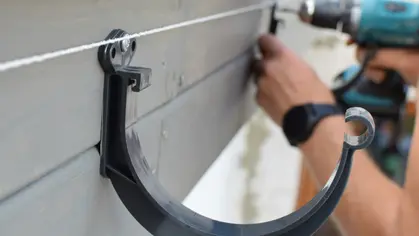How to Choose the Right Gutter Elbows for Your Gutters and Downspouts
- Blue River Gutters
- Oct 31, 2020
- 2 min read
Updated: May 13, 2024

What is a Gutter Elbow?
An elbow on a rain gutter is a piece of downspout used to turn around the contour of the home. The elbow allows you to go from the eave back to the wall and then back down to the ground. Different contours are needed based on the style of home or style of downspout you are wanting to create. The gutter elbows turn sections of a downspout to the left, right, forward and backward down the wall.
What Different Sizes of Gutter Elbows are There?
All rain gutter elbows are about the same length (10 to 12 inches.) However, they come in many different sizes of diameter. The most common dimensions of an elbow is three by four inches. Originally, the elbows were rectangular and were two by three inches. Now, some elbows are round and come in three inch diameter and four inch diameter.

Why are There Different Styles of Gutter Elbows?
Different styles of gutter elbows are used to turn the downspout in all directions. Sometimes when going down a standard wall you may need to move back toward the wall or forward out over a ledge. In this situation, you would use an A style elbow. If a downspout needs to turn left or right, use a B style elbow.
Most gutter elbows turn at a radius of 70 degrees instead of a full 90 degree turn to allow for water flow. This helps the pitch in the corners so water will not sit inside of the gutter and it can dry out after a rain.
What Materials are Gutter Elbows Made of?
Generally, gutter elbows come in just as many types of materials as the gutters themselves. You can find anything from copper or aluminum to PVC. With so many gutter elbow styles available, you can easily match them with your gutters.
Can You Mix and Match Sizes and Materials?
Mixing and matching sizes is very complex because the downspout starts at the gutter outlet and flows down each piece consecutively. Each piece needs to fit together properly. If the sizes are different, connecting all the pieces will be more difficult.
Mismatching sizes is not beneficial nor recommended because water flow can be restricted and the elbows can clog easier if they aren’t put together snug. Water can back up in the place where you reduce the sizes. It is recommended that the elbows are all the same size and consistent with the downspout.
Material styles can be mixed if they are the same size. It may not be aesthetically pleasing, but it can be done. Mixing aluminum with plastic or plastic with galvanized material probably will not look right, but if you have to do it that way it will work. There is one exception to this which is copper. Copper does not mix with aluminum, if they are put together it can lead to deterioration. This is because the two materials cause a chemical reaction.



